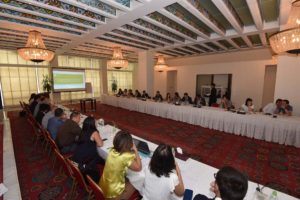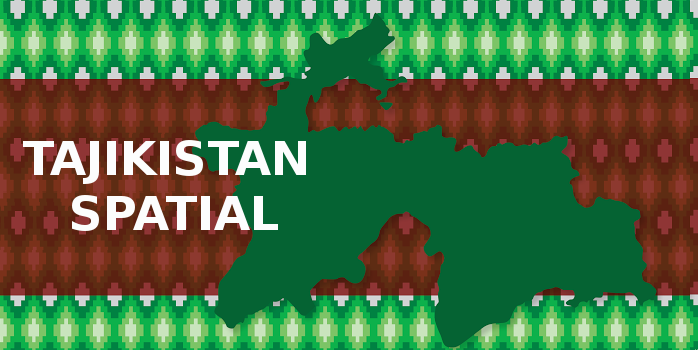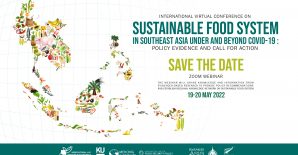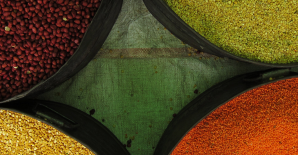On September 20, the International Food Policy Research Institute (IFPRI) and the University of Central Asia’s Institute of Public Policy and Administration (UCA IPPA) launched Tajikistan Spatial, an interactive online portal providing information about food security and development for policymakers, researchers, and the general public. The platform was launched in collaboration with the Local Development Committee under the President of Tajikistan. The Committee will promote the use of the online platform among policy-makers and researchers.
 Tajikistan Spatial is an interactive online mapping and analytical tool that graphically presents data on food security, malnutrition, climate change, and socioeconomic development. Providing data on over 100 indicators related to these focus areas, Tajikistan Spatial has been designed to support evidence-based policymaking in agriculture, food security and nutrition. It allows users to visualize data in numerous ways, offering customized views based on geography and time. A map export and download function allows data from the portal to be easily shared.
Tajikistan Spatial is an interactive online mapping and analytical tool that graphically presents data on food security, malnutrition, climate change, and socioeconomic development. Providing data on over 100 indicators related to these focus areas, Tajikistan Spatial has been designed to support evidence-based policymaking in agriculture, food security and nutrition. It allows users to visualize data in numerous ways, offering customized views based on geography and time. A map export and download function allows data from the portal to be easily shared.
Representatives from the government, research institutes, international organizations, and the private sector were invited to the launch event, where they were given a brief overview about the Tajikistan Spatial concept and IFPRI activities in the country. They were also able to witness a demonstration of Tajikistan Spatial and its various capabilities and pose questions to the presenters. IFPRI and UCA representatives invited participants to submit additional information to Tajikistan Spatial and emphasized a need for collaborative effort on improving the tool.
Available in English and Russian, Tajikistan Spatial is a collaborative project of IFPRI and UCA and is supported by the CGIAR Research Programs on Policies, Institutions, and Markets (PIM) and Agriculture for Nutrition and Health (A4NH), the Ministry of Finance of the Russian Federation, and the International Fund for Agricultural Development (IFAD).




Leave a Reply